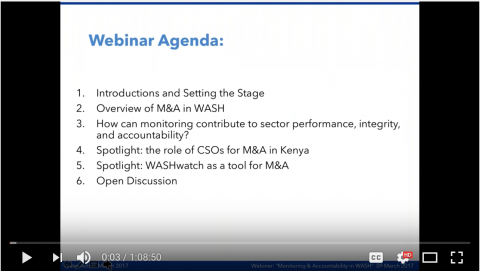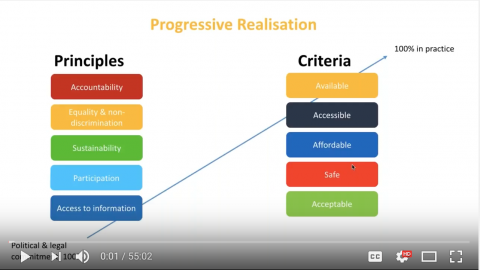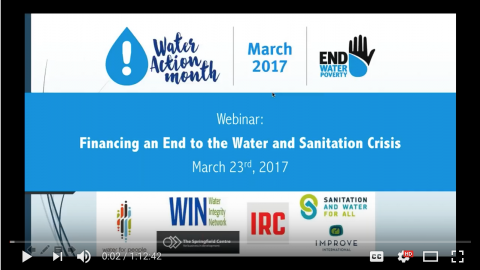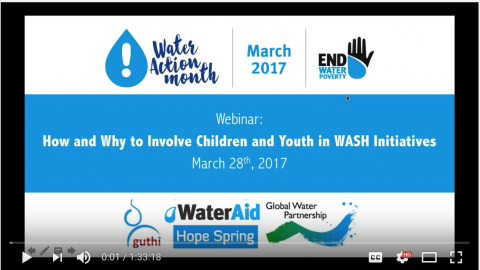Today officially marks one month since World Water Day 2017. As you reflect on the impact made by World Water Day and Water Action Month activities around the world, consider the following key messages from our March webinar series!
Monitoring and Accountability in WASH
(March 9th, 2017)

Webinar Recording
- Lack of monitoring and accountability in WASH can lead to corruption, poor quality infrastructure, and perpetuation of water and sanitation poverty
- WASHWatch is a valuable tool in keeping governments accountable to promises made with regards to WASH
- Civil Society Organizations (CSOs) have an important role to play as watch-dogs and implementers of M&A
Realizing the Human Right to Water and Sanitation
(March 16th, 2017)

Webinar Recording
- The Human Right to Water and Sanitation states that water and sanitation need to be affordable, available, accessible, acceptable (socially and culturally), safe, and be treated in a sustainable way.
- Provision of water and sanitation should incorporate a circular cycle of planning -> building -> running -> monitoring -> analysing, to ensure that services are maintained
- A pocket guide and poster are available for easy reference on how actions that citizens can take towards keeping governments accountable and ensuring the realisation of the Human Right to Water and Sanitation
Financing an End to the Water and Sanitation Crisis
(March 23rd, 2017)

Webinar Recording
- It is important to consider the full life cycle cost of a water or sanitation project
- The WASH sector is in need to additional funding as well as greater efficiency of current distribution systems and funding mechanisms
- Accountability and transparency in financing is critical to ensuring access to water and sanitation for all
Why and How to Involve Children and Youth in WASH Initiatives
(March 28th, 2017)

Webinar Recording
- Children and youth bear the burden of ending the water and sanitation crisis by 2030
- Working with younger age groups helps attain fresh ideas and perspectives on projects, and empowers the younger generation to build a better future
- When engaging with children and youth, incorporating other key stakeholders (parents, teachers etc.) helps ensure the success of the project